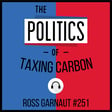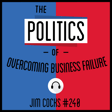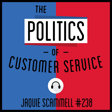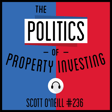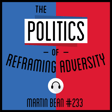
235: The Politics of Feedback - Sue Anderson
If I said I’d like to give you some feedback, how do you immediately react inside? Welcoming? Hostile? Something more nuanced? That is today’s podcast topic and I have to be honest; I have had to get better at both giving and accepting feedback from others over many years in workplaces and personally. It can be hard at times especially when it's not good! Sue Anderson is obsessed with what she calls “feedback fitness” and she is my guest on this episode. Sue has worked across many industries including with Leaders in government, education and training, manufacturing, mining, electricity, gas, water and waste services, transport, healthcare and finance. Sue has developed the world-leading and unique Feedback Fitness framework that provides a step-by-step structure to ensure feedback conversations promote psychological safety. Sue also provides mental skills coaching for elite athletes and is a qualified Mediator. In her spare time, she is a runner – and says we should also mention her husband and 3 kids.
Hear from Sue on:
1. How do you define feedback?
2. Is feedback more than some words and a scorecard? Paint us a picture of the variety or types of feedback common now in businesses you work with.
3. What are the best ways leaders can learn to be more confident and courageous in their conversations with staff that improve performance at work, and not bulldoze through this because that is also not ideal?
4. How do you view 360 feedback – is it always necessary and helpful for workplaces?
5. If we have legacy cultural issues, or toxic team members who may be there for years and/or be our “top performers” is that feedback process likely to be different? How?.
6. How can feedback become more about shared success vs a tick-and-flick HR exercise that can leave people in organisations feeling deflated, cornered or not valued even if they may be meeting their KPIs overall?
7. Takeaway: What is your final message for us on The Politics of Feedback?
Connect further:
https://www.sue-anderson.com.au/
https://www.linkedin.com/in/sueandersongood2gr8/
POE listener offer: Zencastr is my podcast platform of choice. Use my special link (zen.ai/thepoliticsofeverything30 [http://zen.ai/thepoliticsofeverything30]) and use code "THEPOLITICSOFEVERYTHING" to save 30% off your first three months of Zencastr professional. #madeonzencastr
